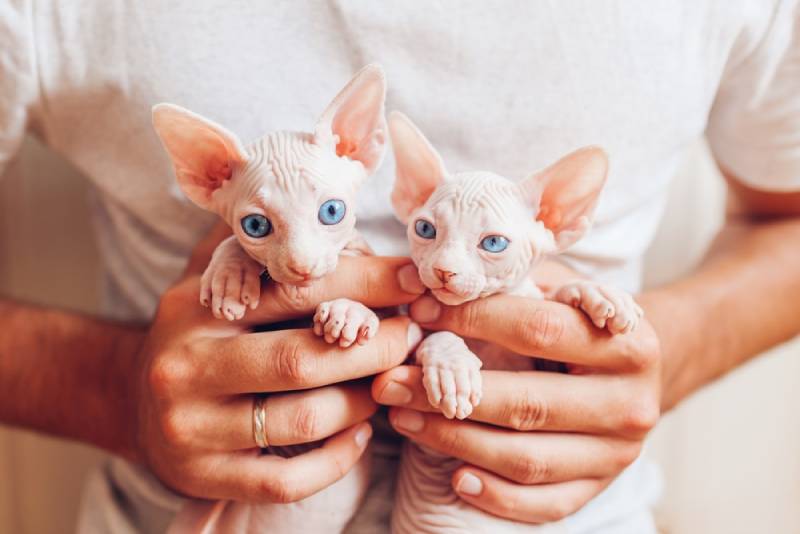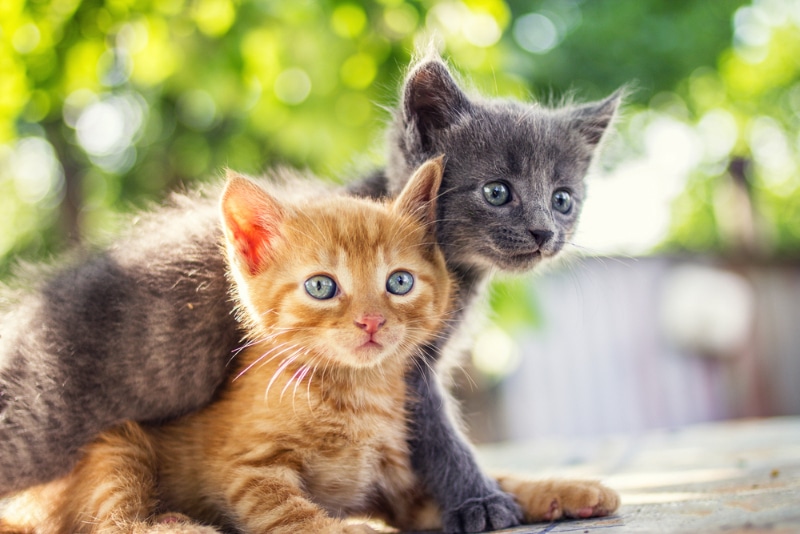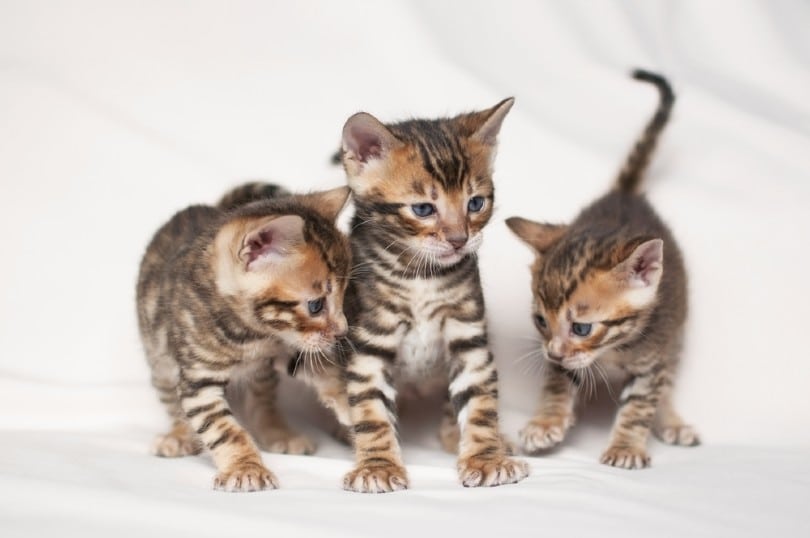If you should add a brand new cat to your loved ones, you would possibly wonder if two kitties are higher than one. When adopting kittens, for instance, it’s often suggested that taking home a pair of baby cats is good. Nonetheless, you is perhaps concerned that related cats will develop a behavioral condition often called littermate syndrome.
In this text, you’ll learn what littermate syndrome is, including the signs of the condition. We’ll also cover the causes of littermate syndrome, why it’s not recognized in cats, and other issues which will look similar in sibling kittens.
Click Below to Jump Ahead:
What Is Littermate Syndrome?
The term littermate syndrome is used to explain problematic behaviors that generally occur in two dogs who’re raised together from a young age. Additionally it is often called littermate dependency, however the two animals don’t must be related for it to occur. Any pair of young animals raised together can develop littermate syndrome.
Pets with littermate syndrome are believed to bond more closely with each aside from with the humans of their lives, resulting in behavioral problems in maturity. For instance, they might develop anxiety if separated from one another or have trouble learning independently.
Veterinary behaviorists agree that littermate syndrome doesn’t robotically occur when two young dogs are raised together. As an alternative, they imagine that the issue and challenges of homeowners attempting to pull double duty when training and socializing the animals result in inappropriate behaviors related to littermate syndrome.
The excellent news for cat owners is that littermate syndrome isn’t currently recognized to occur in cats. Cats are naturally more independent than dogs and typically don’t have problems with socializing or bonding as pairs of puppies do.
In actual fact, adopting a pair of kittens can sometimes make your life easier because the energetic animals can keep themselves entertained and exercised.
Image Credit: CebotariN, Shutterstock
What Are the Signs of Littermate Syndrome?
Pets with littermate syndrome may display quite a lot of behavioral signs. They are sometimes extremely attached to one another, ignoring other humans or animals when the opposite is around. This attachment may cause them to have a tough time bonding with people and result in poor socialization and training challenges.
Poorly socialized animals can have problems with aggression or fear because they never learned learn how to respond appropriately to unfamiliar situations. Littermate syndrome may result in separation anxiety in adult animals.
What Are the Causes of Littermate Syndrome?
As we mentioned, experts imagine that it’s not simply the act of two pets being raised together that causes littermate syndrome, but specific experiences and challenges that associate with it. For instance, since it’s so time-consuming to coach and socialize a puppy, owners with two puppies may attempt to work with each animals at the identical time.
Nonetheless, because animals are individuals, the identical socialization and training methods may not work for each puppies. As well as, the puppies may not get the time they should process and develop at their very own pace. Housetraining will be frustrating because probably the most effective methods depend on routines and positive reinforcement, which will be hard to perform with two dogs.
Behaviors like chewing, scratching, or play-biting are doubly frustrating when attempting to redirect two animals. It’s possible you’ll miss possibilities to reward the behavior you’re attempting to encourage or by accident reinforce those you aren’t.
To sum up, young animals who don’t get the prospect to experience training and socialization as individuals usually tend to develop behaviors related to littermate syndrome. Again, these issues typically occur in dogs slightly than cats.
Image Credit: Kutikova Ekaterina, Shuterstock
Ceaselessly Asked Questions (FAQ)
Is It Higher to Adopt Two Kittens?
As we discussed, two kittens raised together are unlikely to develop the behavior problems summed up as littermate syndrome like puppies do. Adopting two kittens directly definitely has advantages. Kittens often form a robust bond and get along well together, though this is just not all the time the case.
Kittens may help tire one another out by playing together slightly than pestering you or one other pet for attention. Interestingly, research suggests that owners who adopt two kittens from a litter usually tend to keep them long-term. Nonetheless, kittens don’t necessarily should be adopted together to thrive.
Adopting two kittens is option if you’ve got the space and money, nevertheless it’s not all the time needed. With attention and proper environmental enrichment, one kitten will be perfectly comfortable at home with their humans.
My Cat Seems Lonely. Should I Get a Second Cat?
Unrelated adult cats don’t all the time have the best time bonding with one another. Before getting a second cat, consider the personality of your existing pet. Calm, friendly cats could also be positive with a brand new friend, while shy cats might imagine the world is ending.
As we discussed, cats can fill their social and emotional needs by other means, reminiscent of human attention or perhaps a dog friend. If you happen to need a second cat, you might have higher luck introducing a kitten into the home than one other adult.
Plan to introduce the brand new cat regularly, and don’t be surprised if it takes months for the animals to get along. There’s also a probability that they never will.

Conclusion
Because cats generally aren’t recognized to get littermate syndrome, the query of whether to adopt two kittens will depend upon other aspects. Remember, two cats require twice as much food, supplies, and veterinary care. Additionally they need more time and a focus than a single animal. Consider your budget and downtime when deciding whether to adopt a couple of kitten. For the cat’s sake, don’t feel pressure to tackle more pets than you possibly can afford or look after successfully.
Featured Image Credit: ANURAK PONGPATIMET, Shutterstock




